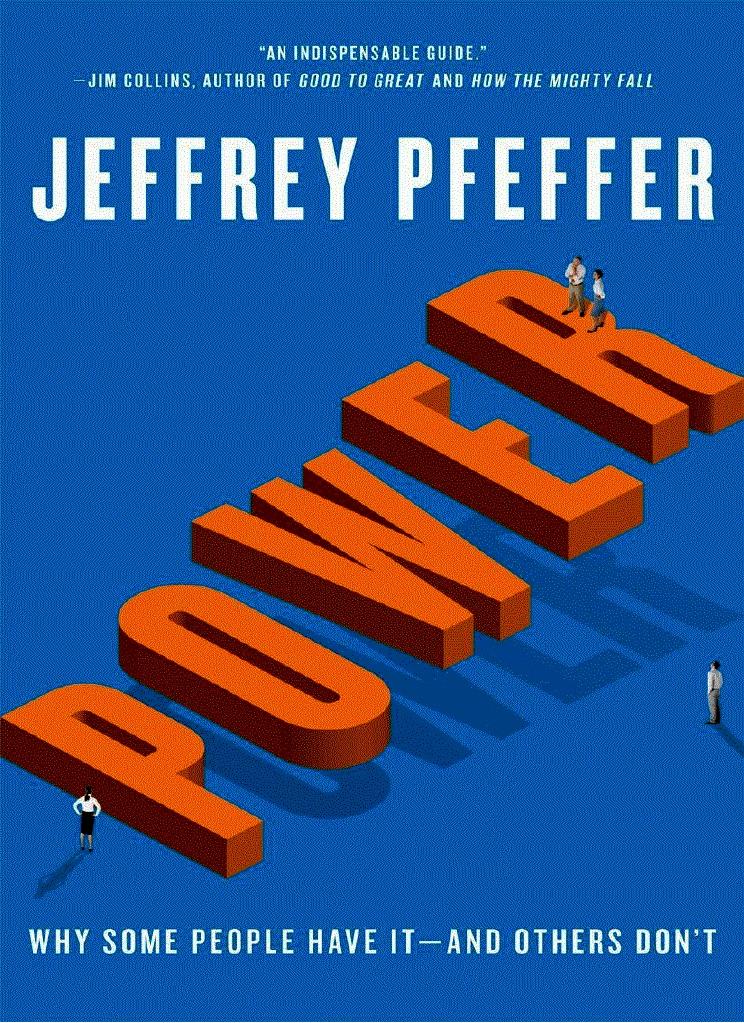Power by Pfeffer Jeffrey

Author:Pfeffer, Jeffrey [Pfeffer, Jeffrey]
Language: eng
Format: mobi, epub, pdf
Published: 0101-01-01T00:00:00+00:00
PERSUASIVE LANGUAGE
Language that influences is able to create powerful images and emotions that overwhelm reason.24 Such language is evocative, specific, and fil ed with strong language and visual imagery. When Winston Churchil became prime minister of Britain in May 1940, he was 65 years old and had been out of power for 10 years. Churchil and Britain faced uncertain prospects and terrible travails in the war with Germany. His oratory helped build his power and image, ral y the country, and turn the tide of the war: You ask, what is our policy? I wil say: It is to wage war, by sea, land and air, with al our might and with al the strength that God can give us…. You ask, what is our aim? I can answer in one word: It is victory, victory at al costs, victory in spite of al the terror, victory, however long and hard the road may be, for without victory, there is no survival.25
Churchil understood the power of language, having once commented, “Words are the only things that last forever.”26 So did Oliver North. When North says during the Iran-contra hearings that he would have offered the Iranians a free trip to Disneyland if that would have gotten the hostages home, you can picture both Disneyland and the hostages. In contrast, Donald Kennedy’s testimony about indirect costs was fil ed with an alphabet soup of references to the various agencies that audit contracts for the government and descriptions of MOUs (memoranda of understanding that set out contract provisions). The sense is that even if there were no technical violations of regulations, he was trying to cower in the protection of legal technicalities rather than confront commonsense understanding of what is right and wrong.
Sociologist and conversation analyst Max Atkinson has analyzed speeches and everyday talk to understand what creates persuasion and makes the speaker seem potent. In addition to noting the importance of terms that push emotional hot buttons—in the United States, phrases such as “socialist,” “free market,”
“bureaucracy,” and “national security”—persuasive language that produces support for you and your ideas is language that promotes identification and affiliation. Good examples of such language would be presidential candidate John McCain’s use of phrases such as “my friends” and “we” during his campaign. Words suggesting common bonds cause the audience to believe that you share their views.
In addition to using words that evoke emotions and signal common interests and shared identity, Max Atkinson describes a number of conventions that make speech more persuasive and engaging. Here are five such linguistic techniques.
1. Use us-versus-them references. “It is widely known that the need to resist an external threat, whether real or imagined, has always been an extremely effective ral ying cry when it comes to strengthening group solidarity.”27 When United Airlines entered the California market in 1994, Herb Kel eher, then CEO of Southwest Airlines, sent his employees a video describing United as a “war machine” aimed to strike at Southwest and imploring his people to stick together to provide great customer service al over the system.
Download
This site does not store any files on its server. We only index and link to content provided by other sites. Please contact the content providers to delete copyright contents if any and email us, we'll remove relevant links or contents immediately.
Hit Refresh by Satya Nadella(9105)
The Compound Effect by Darren Hardy(8903)
Change Your Questions, Change Your Life by Marilee Adams(7717)
Nudge - Improving Decisions about Health, Wealth, and Happiness by Thaler Sunstein(7678)
The Black Swan by Nassim Nicholas Taleb(7086)
Deep Work by Cal Newport(7040)
Rich Dad Poor Dad by Robert T. Kiyosaki(6575)
Daring Greatly by Brene Brown(6486)
Principles: Life and Work by Ray Dalio(6382)
Playing to Win_ How Strategy Really Works by A.G. Lafley & Roger L. Martin(6180)
Man-made Catastrophes and Risk Information Concealment by Dmitry Chernov & Didier Sornette(5980)
Digital Minimalism by Cal Newport;(5740)
Big Magic: Creative Living Beyond Fear by Elizabeth Gilbert(5725)
The Myth of the Strong Leader by Archie Brown(5481)
The Slight Edge by Jeff Olson(5394)
Discipline Equals Freedom by Jocko Willink(5354)
The Motivation Myth by Jeff Haden(5191)
The Laws of Human Nature by Robert Greene(5136)
Stone's Rules by Roger Stone(5065)
